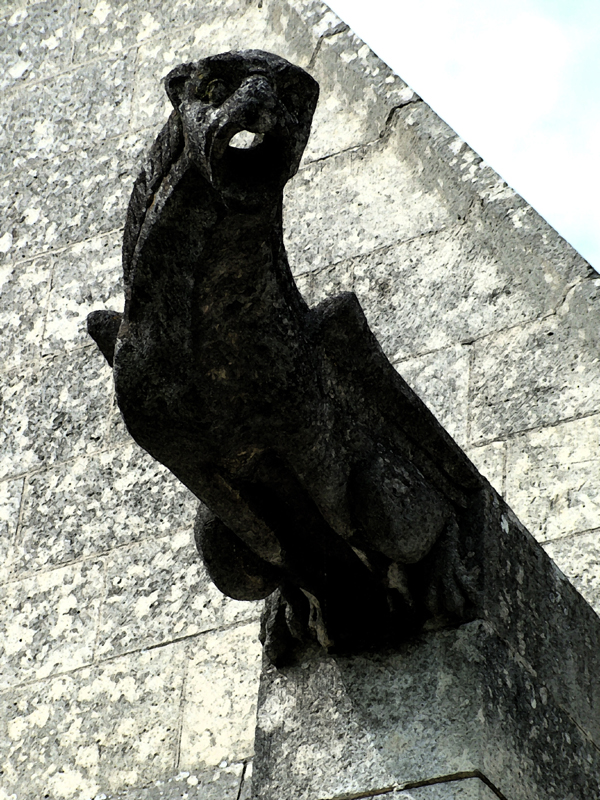“Prepare! Prepare!” The squeal came from behind Philip, and then above him. “He comes today. He comes to return that which is due.”
Philip’s hands shot over his head. A snap of air rushed up the back of his neck. A few strands of hair were plucked form his scalp. The tiny thing had flown in through the window. It had come in right behind him, filling the room with the sound of frantic wings and a smell like that of boiled ham left on the stove for too long.
“The Korgun comes today.” The thing was moving up in the rafters now. Its voice came from right above him, and then from near the door. “Surely you have been waiting for this day when you can take back that which is yours, when the Korgun shall return that which he took so long ago.”
Blood rushed to Philip’s head. He held his breath for a moment before forcing it back out through his nose, and then set his chisel back on the table, taking care to put it in the exact spot where it belonged so that he could retrieve it again when needed.
“The Korgun? You are mistaken.”
The thing flew down to the table, landing with a great clattering. “Yes, the Korgun. He comes today to give a blind man back his sight.”
Philip closed his hand over the misshapen lump of wood that had just started to take shape, massaging shallow grooves that needed more time with the chisel. “But I sent word to the Korgun. I sent notice that our arrangement should be final.”
The thing seemed to almost tiptoe up to him, making a tack-tack-tack noise on the table. Tools rolled across the tabletop. One fell over the side, toppling to the floor. “You have no choice, human. Such things were decided long ago.”
Philip bent to retrieve the tool, wondering how long it would take to get them all back in their proper place. The smell of the creature almost overpowered him, wiping out the warm sweet scent of wood shavings that he never got completely off the floor no matter how often he swept. “Well, he has wasted his time then. He need not have made the journey here.”
As if on cue, there came a loud rap at the door, a firm knock that echoed into the room and was quickly followed by two short taps.
“You had best answer.” The thing seemed to be grooming itself now, each word was punctuated with a wet sucking sound. “The Korgun does not wait.”

 She knew the castle roofs better than the humans ever would. She’d named every gargoyle. In the summers she’d climbed the rafters of the bell tower and watched the cuckoos come and lay their eggs in other birds’ nests. She knew how you couldn’t trust the gatehouse, since its roof was rotten with moss and about to fall in, but the roof over the kitchens was a good place. There was a good shot there for throwing bits of slate at the kitchen boys when they went out. They’d put their hands over their heads and beg her not to hex them, so naturally she’d dance back and forth and yell ooga-booga until they screamed and ran back inside. The humans all smelled funny, anyway.
She knew the castle roofs better than the humans ever would. She’d named every gargoyle. In the summers she’d climbed the rafters of the bell tower and watched the cuckoos come and lay their eggs in other birds’ nests. She knew how you couldn’t trust the gatehouse, since its roof was rotten with moss and about to fall in, but the roof over the kitchens was a good place. There was a good shot there for throwing bits of slate at the kitchen boys when they went out. They’d put their hands over their heads and beg her not to hex them, so naturally she’d dance back and forth and yell ooga-booga until they screamed and ran back inside. The humans all smelled funny, anyway.